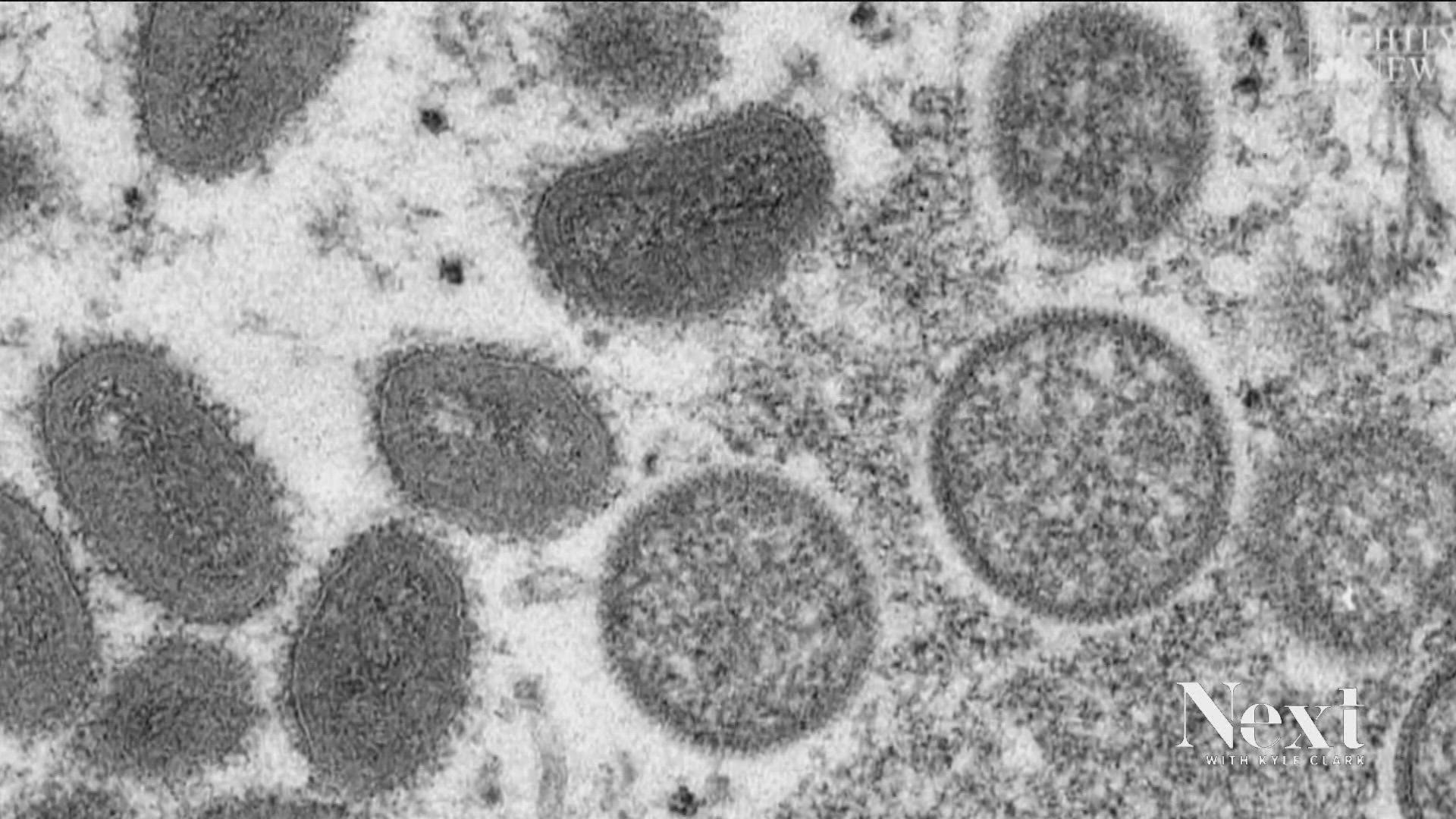DENVER — The Colorado Dept. of Public Health and Environment (CDPHE) is standing up vaccine clinics for monkeypox. The state's overall strategy is different than it was for COVID, but some of the hurdles are the same.
We asked why those same issues are showing up after all the practice of the pandemic.
How contagious is monkeypox?
"For most people, it's not going to be something they will be worried about," said Dr. Michelle Barron, an infectious disease expert at UCHealth.
Monkeypox is different than COVID in the sense that it's not as contagious.
Barron said the current version of monkeypox circulating in the U.S. tends to cause a rash but not make people severely ill. The mortality is also incredibly low. She did say here are other forms of monkeypox in other countries that are more severe with higher death rates.
Who is getting monkeypox?
"[The] primary way it spreads is direct skin-to-skin contact -- unlike COVID, where we had a lot of people, the whole community potentially, at risk as cases and community spread ramped up," said Nicole Comstock with CDPHE.
"Monkeypox right now is in a defined population where we are working with people who are at risk. That's men who are gay, bisexual, men who have sex with other men, especially if they have anonymous partners or multiple partners in the past 14 days."
The state said they know that based off of global outbreaks.
"Primarily, because there have been outbreaks in other parts of the world affecting this population," said Comstock. "Initial cases in the West traveled to those areas. It's really just the social networks where it's spreading at this point. Our efforts are on par to control that spread, so it doesn't result in wide community spread."
That last point is important.
"Anyone can potentially be susceptible to monkeypox," said Comstock.
Based on resources and what the state knows at this point has shaped their strategy.
"Because monkeypox doesn't spread as easily, not nearly as contagious like COVID or other viruses commonly circulating," said Comstock. "Taking a data driven approach to get the limited amount of vaccines to the individuals who benefit."
"It's not to the same magnitude as COVID, or flu, or a lot of others thing that could change, obviously," Barron said.
There are eight known cases in Colorado over the last couple months, and one needed to be admitted to the hospital.
Vaccine availability?
Vaccine preparedness is a work in progress.
The state said they administered 250 vaccines at a clinic last week and will administer another 300 at more clinics this week (appointments are available here for patients who meet the "high-risk criteria). More than 80 people were on a waiting list last week.
Now the state is waiting on more shipments from the federal government, hoping to see that arrive in the next few weeks.
"The vaccine isn't available commercially," said Comstock. "So it's limited through the federal strategic stockpile."
Testing
Since the state is shaping their strategy based on who they know is falling sick at this point, we asked about testing.
CDPHE said:
"While data shows Colorado's cases are in the Denver metro area, we are working with health care providers and community partners statewide to ensure people are aware of the symptoms of monkeypox. These efforts have included sending Health Alert Network messages to health care providers in the state, holding meetings with community organizations across the state, and performing outreach and providing printed materials to sexual health clinics, businesses, and community partners. We are currently using our extremely limited federal supply of vaccines to hold clinics in the Denver metro area, and we are working with local public health agencies and health care providers on plans to potentially expand vaccine access across the state as we hope our allotment from the federal government increases in the coming weeks.
To date, the CDPHE lab has been the only lab in the state able to conduct monkeypox testing; however, today LabCorp announced that they will begin monkeypox testing.
We work with health care providers statewide to ensure access to monkeypox testing if a patient seeks care and has symptoms consistent with monkeypox. We encourage anyone experiencing symptoms of monkeypox to contact a health care provider. We update our website each Thursday at 4 p.m. with the latest number of confirmed cases."
Barron wrote:
"Testing is actually pretty simple – you just swab the lesions and the supplies used are common place so again, not a rate limiting factor.
Anyone with a rash and concern for monkeypox can be tested and could potentially be performed in most doctor's offices, urgent care clinics, or the [emergency department]. At UCHealth, all our locations have instructions/training on how to do this. It is important to test for other common things that can look similar too, e.g. HSV, syphilis, etc.
Once the specimens are obtained, they are sent to CDPHE for preliminary testing and to the CDC for confirmation testing. I am not sure of the turnaround time from CDPHE or CDC is but right now there doesn't appear to have significant delays."
SUGGESTED VIDEOS: Full Episodes of Next with Kyle Clark

